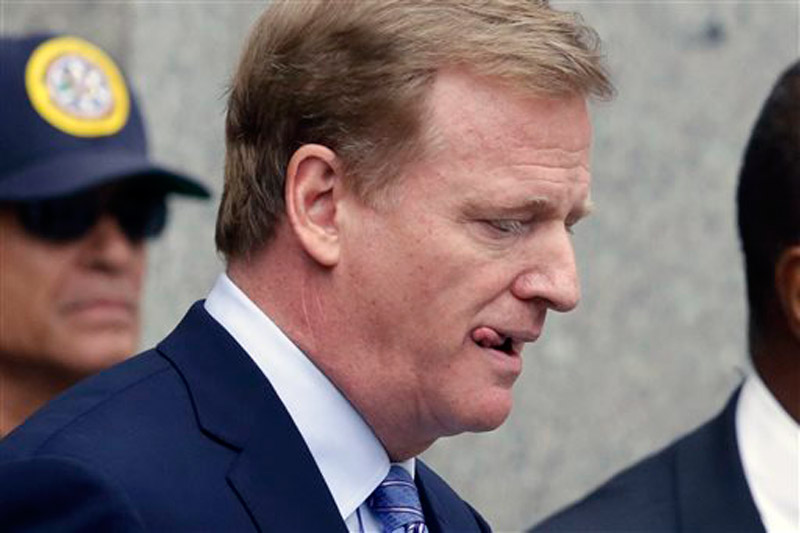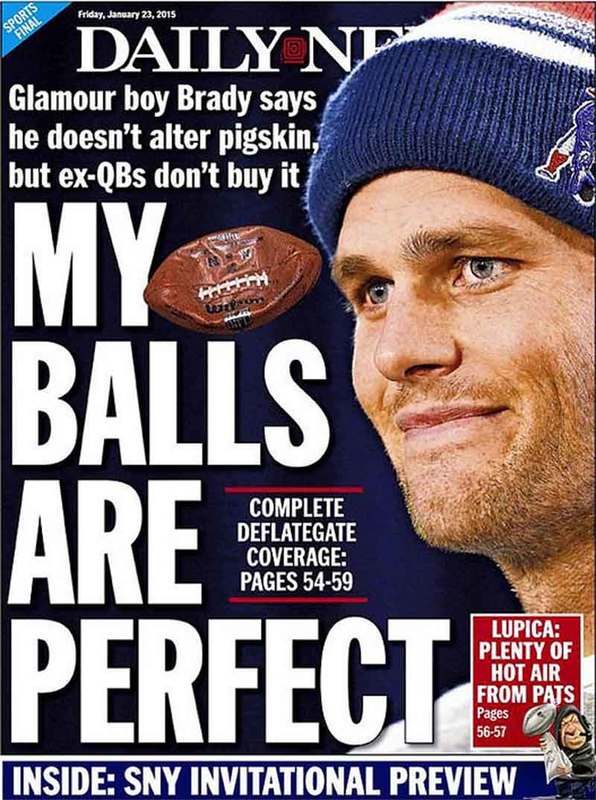Sign up for the daily CJR newsletter.
The stereotype goes like this: ESPN is a mouthpiece for the sports leagues with which it shares TV deals—the money is too good for it not to be. Indeed, the broadcaster pays the NFL $1.9 billion a year to host Monday Night Football games and produces a seemingly endless stream of granular, gridiron-related content to fuel its multimedia empire. This lucrative marriage appears to have earned NFL executives the ears of their counterparts at ESPN: The latter canceled a fictional TV drama in 2004 amid league protests, and in 2013 it removed its name from a documentary, co-produced with Frontline, on the NFL’s response to head injuries.
The incestuous ties are often troubling. But the media outlet this week once again proved that its relationship with the NFL is more complicated than the oft-used stereotype implies. A year after investigating the league’s response to a star player knocking out his fiancee in a hotel elevator, ESPN on Tuesday published yet another exposé on a botched NFL attempt at damage control.
NFL Commissioner Roger Goodell leaving federal court on Monday. (AP Photo / Mark Lennihan)
Its 10,000-word Outside the Lines investigation suggests that NFL Commissioner Roger Goodell’s abrupt response to “Spygate,” the New England Patriots’ systematic cheating operation exposed in 2007, indirectly influenced his ironfisted and much-publicized approach to a more recent Patriots scandal, “Deflategate.” As Don Van Natta Jr. and Seth Wickersham report:
“The diametrically opposed way the inquiries were managed by Goodell–and, more importantly, perceived by his bosses–reveals much about how and why NFL punishment is often dispensed. The widespread perception that Goodell gave the Patriots a break on Spygate, followed by the NFL’s stonewalling of a potential congressional investigation into the matter, shaped owners’ expectations of what needed to be done by 345 Park Ave. on Deflategate.
It was, one owner says, time for “a makeup call.”
The story is damning for New England, but perhaps more so for the NFL. It sheds light on how Goodell navigates internal league politics to mollify billionaire owners, while at the same time shielding the NFL’s more than $10 billion a year product from outside scrutiny. It comes just days before the kickoff of the 2015 regular season, not to mention amid a crescendo of criticism of the NFL’s disciplinary policies toward everything from the integrity of the game to off-field domestic abuse.
“I had a number of sources ask me while I was reporting this, Are they going to let you do the story since ESPN is a business partner with the NFL?” Van Natta says. “Yes. There were only green lights.”
Van Natta concedes that it’s difficult to prove that the Patriots won additional games by knowing opponents’ plays. But his and Wickersham’s story is one of perception: perception that the Patriots tried to gain an unfair advantage; perception that the NFL didn’t do enough to deter them; and perception that the league’s more recent, made-for-tabloid crackdown was essentially Goodell’s olive branch to the owners, his bosses.
“In that initial sweep of calls that we made in May, we heard from different coaches and executives that this was a pervasive feeling,” Van Natta says. “And the response I’ve gotten from the story—even from people we didn’t interview—only confirms to me that ‘Spygate’ being mishandled and under-prosecuted still reverberates around the league.”
In 2007, NFL executives shredded the Patriots’ “Spygate”-related notes and physically stomped on tapes of opponents’ play-calling, destroying evidence of the crime. Goodell didn’t know how many teams had been recorded, and teams had no way of knowing whether they had been among those targeted.
The New York Daily News cover on Jan. 23, 2015.
Despite owners’ resulting anger, however, they stood by Goodell as he deflected a probe by Senate investigators. “They were angry, on the one hand, at the way Goodell handled Spygate,” Van Natta says. “But they were also scared about having to go to Washington and answer to the Senate. That threatened the business model. That overrode the anger at that moment.”
The league survived the Senate investigation. Business is better than ever. And Goodell, as Sports Illustrated also reports, has shored up enough political support among league owners to survive the public relations disaster du jour. “As long as the business model continues to be popular and successful,” Van Natta says, “then it’s easier as an organization to shirk off and not really sweat the negative headlines.”
Of course, those headlines carry more weight when they come from a giant like ESPN. The company—like sports media in general—faces its own questions of perception. And it’s joined competitors in recent years by increasingly covering the NFL as a business, as well as a cultural institution. While that editorial decision may be more complicated for ESPN given its financial ties, Tuesday’s story shows it isn’t afraid of occasionally putting its mouth where its money is.
Has America ever needed a media defender more than now? Help us by joining CJR today.









